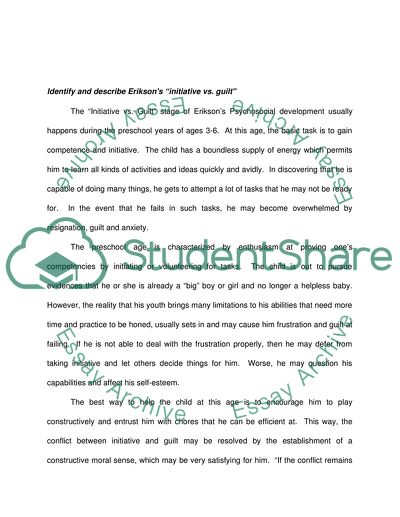Questions 7 & 8 psychosocial dev Essay Example | Topics and Well Written Essays - 500 words. Retrieved from https://studentshare.org/miscellaneous/1541110-questions-7-8-psychosocial-dev
Questions 7 & 8 Psychosocial Dev Essay Example | Topics and Well Written Essays - 500 Words. https://studentshare.org/miscellaneous/1541110-questions-7-8-psychosocial-dev.


